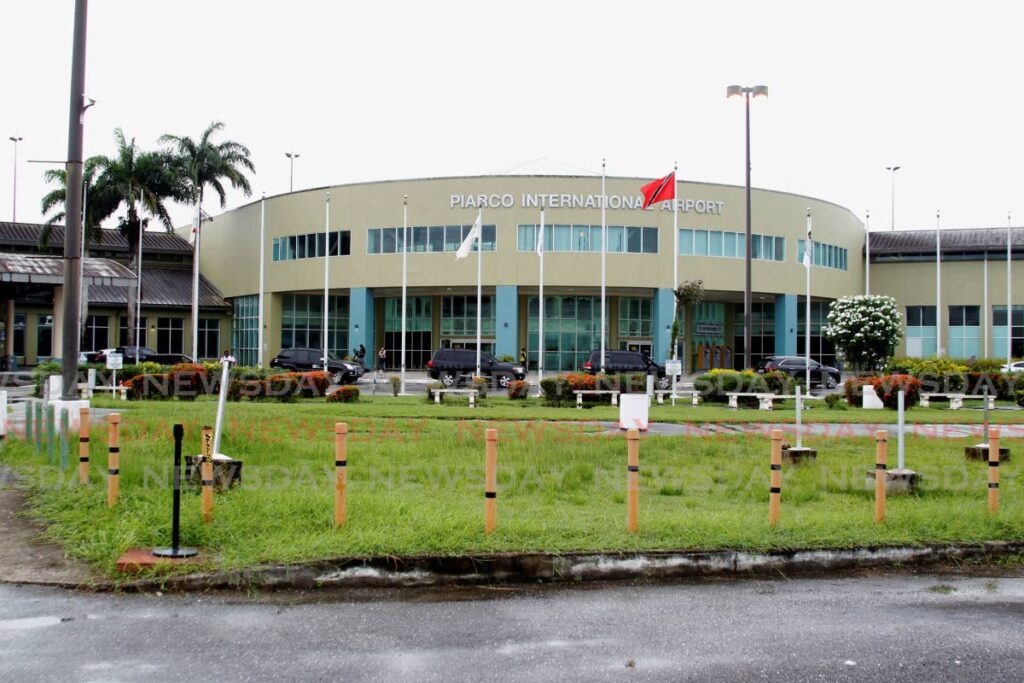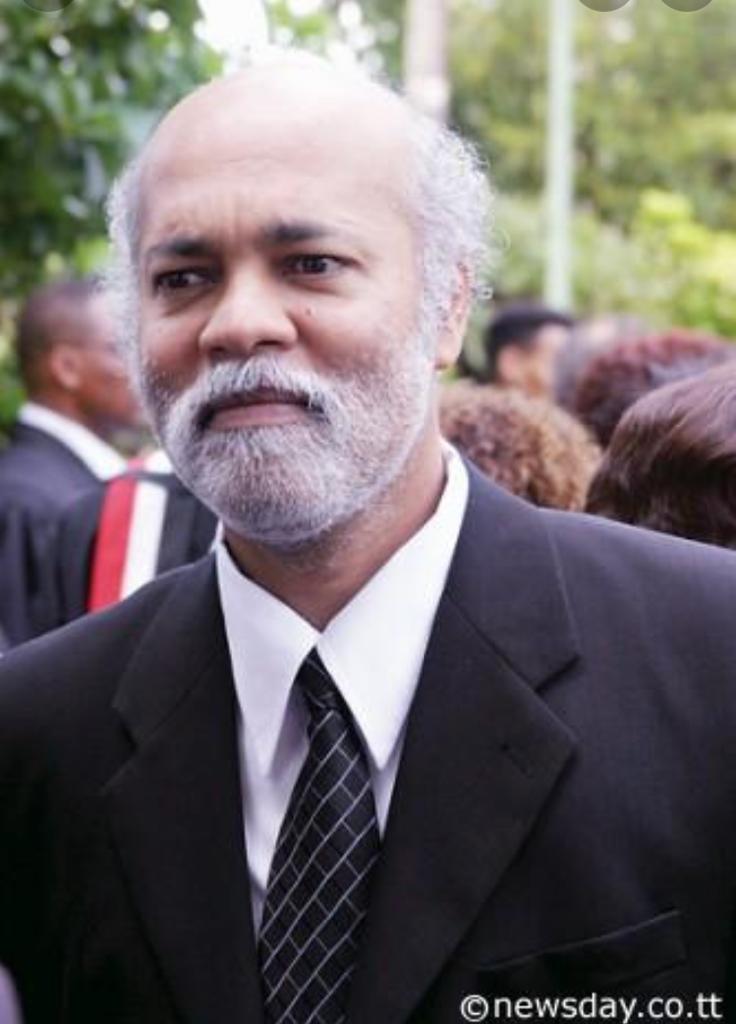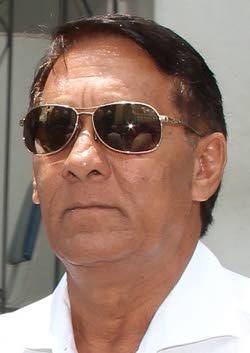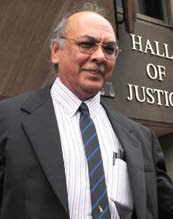Piarco accused could walk free after Privy Council ruling

THE STATE’S 22-year-old criminal case against a former government minister and a group of businessmen arising out of the construction of the Piarco Airport terminal building has been thrown out by the Privy Council on Monday. They had been charged with a multiplicity of offences.
In a 26-page ruling, the Law Lords wrote that the decision of late chief magistrate Sherman McNicolls to commit the accused to stand trial was tainted by apparent political bias.

The decision comes on the heels of a US judge’s ruling disqualifying Attorney General Reginald Armour, SC, and the US law firm Sequor Law from a multi-million-dollar civil asset forfeiture case, on the basis of Armour’s previous work as an attorney for one of the defendants.That matter is under appeal in the US. The case has been dragging on for the last 18 years.
The latest blow to the State’s case threatens to derail another set of criminal charges still under challenge in the local courts, legal sources said.
The Privy Council, in its analysis of the appellants’ case, linked the conviction of former prime minister Basdeo Panday, the move to impeach former chief justice Satnarine Sharma, McNicolls’ corruption claims against Sharma and the intervention of former attorney general John Jeremie. The panel supported the position that there was sufficient information in the public domain to support a claim of apparent bias.

McNicolls had dismissed an application to recuse himself on the basis of apparent bias, and the local courts upheld his decision.
The judgment said: “The above is sufficient for allowing both appeals.
“The constitutional claim succeeds because a tribunal which is seen to be impartial is part and parcel of both due process under section 4 (of the Constitution) and a fair hearing in terms of section 5.
“However, as will be apparent, if there were any doubt on the matter the observer would have a number of other important issues to assess.”
It said these would include “the absence of any reasoning for the Chief Magistrate’s dismissal of the recusal application and the transparent attempt to avoid scrutiny by labelling it as frivolous and vexatious.”
When all these “various sources of concern” were considered together, the Law Lords concluded, “The observer would be likely to agree with the appellants’ submissions that by January 2008 the Chief Magistrate was hopelessly compromised.”
It conceded, “Given that everything was happening in the full glare of publicity his mind must have been in turmoil,” but nevertheless accepted the State’s submissions that if the bias challenge were to fail, there would be no scope for success in the claim for constitutional relief.
“The concerns as to due process and fair hearing are dependent on the same factors which underpin the judicial review (lawsuit). To countenance an inherently vague and novel challenge based on the alleged lack of moral authority of a judge who is otherwise entitled to preside would be something of a slippery slope and difficult to reconcile with established safeguards of judicial independence.”
For these reasons, it said the board “allows both appeals and quashes the decisions of the Court of Appeal.”

It explained that in each case the Appeal Court had erred “by failing to hold that the test for apparent bias was satisfied and that recusal should have followed. Both the application for judicial review and the claim for constitutional relief are granted with the consequence that the Piarco I committal decision of 7 January 2008 falls to be quashed. Any other consequential matters are remitted to the High Court.”
The ruling directly affects Piarco I and could also affect Piarco II, which was left unfinished after the magistrate hearing the case retired before completing the matter. A similar application of apparent bias was also made in that matter and was dismissed.
Lawyers say it is now open to the defendants to sue the State for compensation for the breach of their constitutional rights.
The Piarco cases
The charges against former government ministers, a group of businesspeople and public officials stemmed from a multi-million-dollar investigation by Canadian forensic investigator Robert Lindquist in 2000.
In 2002, the first group were charged with offences alleging theft of $19 million during the construction of the Piarco Airport terminal between 1995-2000, in what is commonly referred to as the Piarco I corruption charges.
Those charged in that case are:
Former finance minister in both the PNM and UNC administration Brian Kuei Tung
Former PNM national security minister and attorney Russell Huggins
Former Nipdec chairman Edward Bayley
Maritime executives John Smith, Steve Ferguson and Barbara Gomes
Ishwar Galbaransingh, chairman of Northern Construction Ltd
Amrith Maharaj, financial director of Northern Construction Ltd
Businesswoman Renee Pierre, then Kuei Tung’s companion.
Smith was murdered in July 2021 and Bayley died after a prolonged illness in 2006.
In 2006 multiple charges were filed against several people, including American businessmen and companies, in a broader conspiracy to steal over US$200 million by setting up ghost companies, in what is referred to as Piarco II.
Those charged in that case included:
President of Calmaquip Engineering Corporation Raul Gutierrez Jr, of Florida
The principals of Birk Hillman – consultants in the airport project – Eduardo Hillman-Waller and Ronald Birk, also of Florida.
In 2007, Gutierrez, Hillman-Waller and Birk pleaded guilty to similar charges in Florida and were sentenced to prison terms ranging from six months to six years. They also agreed to pay US$4 million each in compensation to Trinidad and Tobago.
They were accused of conspiring between January 1, 1995 and December 31, 2001, to obtain contracts and payments totalling $1.6 billion during the construction of the new airport.
The offences are alleged to have occurred in the US, TT, The Bahamas and elsewhere between September 1, 1996 and December 31, 2005.


Comments
"Piarco accused could walk free after Privy Council ruling"